He has always been a vocal campaigner on mental health, having grown up under the scrutiny of the media and the Royal Family.
But Prince Harry has done even more work on the issue since stepping down as a working royal and relocating to California.
Just last year, Harry called for the term ‘mental health’ to be replaced with ‘mental fitness’ at a conference in New York – where he also said mental health was a ‘very, very important subject that affects every single one of us from top to bottom, from the youngest to the oldest’.
In 2022, he chided the reluctance of Britons to seek counselling and praised what he called the ‘I’ll get my therapist to call your therapist’ mentality he’s found since moving to America with Meghan Markle.
Indeed, the Prince has become remarkably candid about his own mental health struggles in recent years, which he claims has been aided by Meghan – who identified his need to see a therapist as early as 2016.
However, while the so-called ‘peace summit’ that took place last week have raised hopes of the rifts between the Palace and the Sussexes being healed, his discussions have in the past caused further divisions in the family.
Speaking on the Armchair Expert podcast in 2021, the Prince alleged that many of his issues stemmed from the pain his own father had experienced due to bad parenting.
Discussing Prince Charles, Harry claimed that the way Queen Elizabeth II and Prince Philip raised their children meant that ‘he is treating me in the way he was treated’.
By moving his family to America with Meghan, Harry said he was hoping to raise his own children differently.
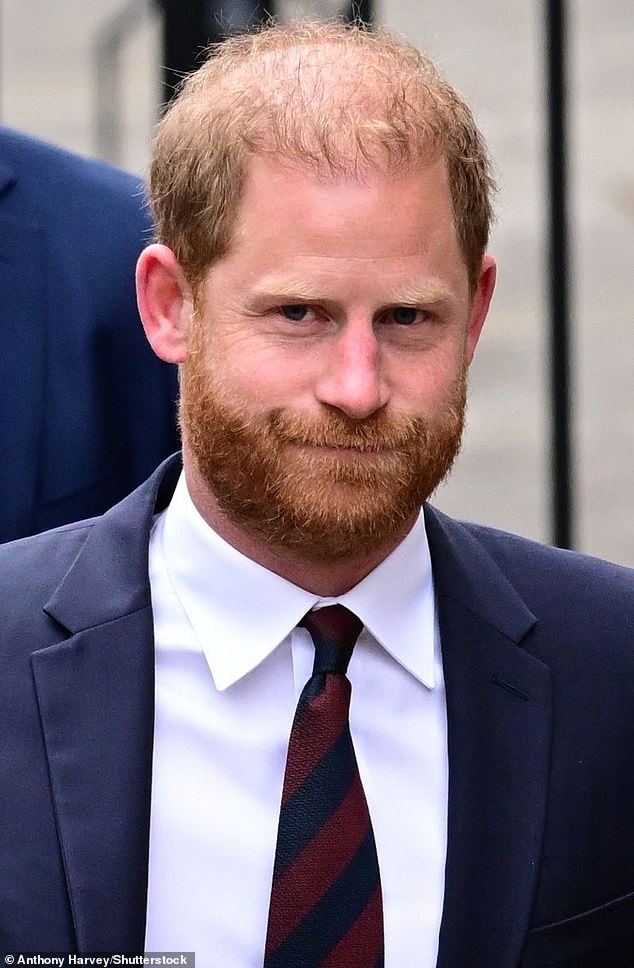
Since stepping down as a working royal, Prince Harry has been remarkably candid about his own mental health struggles
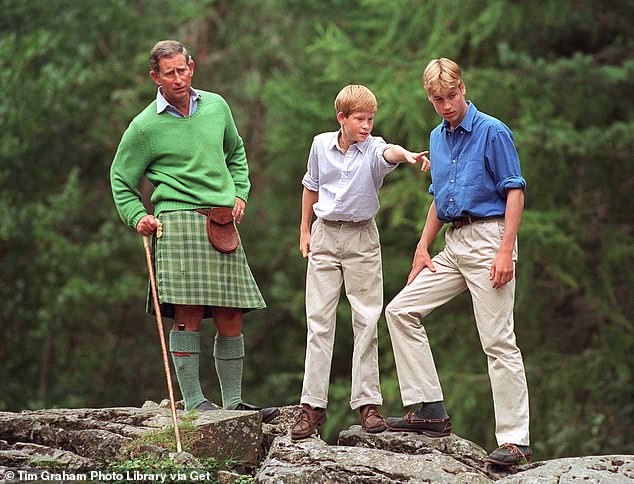
A young Prince Harry with his brother Prince William and father King Charles at Balmoral. In a 2021 interview, Harry alleged that many of his issues stemmed from the pain his own father had experienced due to bad parenting
‘Sometimes you have got to make decisions and put your family first and your mental health first,’ he said.
When the late Queen was alive she took a much more traditional view of how to look after her mental health.
Writing in her royal biography, My Mother And I, Ingrid Seward said: ‘The Queen could have been the one who needed to put her mental health first, but instead she did what she always did – compartmentalised things.
‘There was no point in worrying about Harry as he was not going to take notice of anyone except Meghan.’
Seward claimed the Queen thought Charles had done well raising William and Harry following the breakdown of his marriage to Princess Diana.
‘The Queen felt her son had pulled himself together and done well with both William and Harry since the separation and divorce from their mother,’ she wrote.
The Duchess of Sussex, has also been candid about her mental health battles.
During a bombshell interview with US talkshow host Oprah Winfrey in 2021, Meghan revealed the stress of royal life made her suicidal when she was five months pregnant.
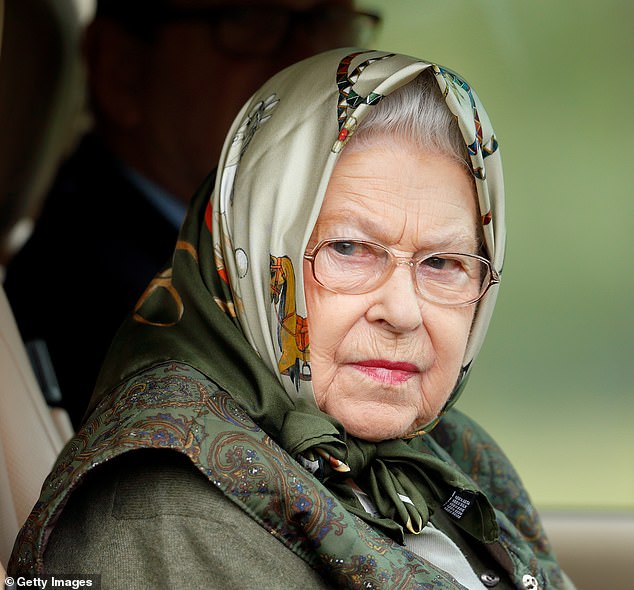
When the late Queen was alive she took a much more traditional view of how to look after her mental health
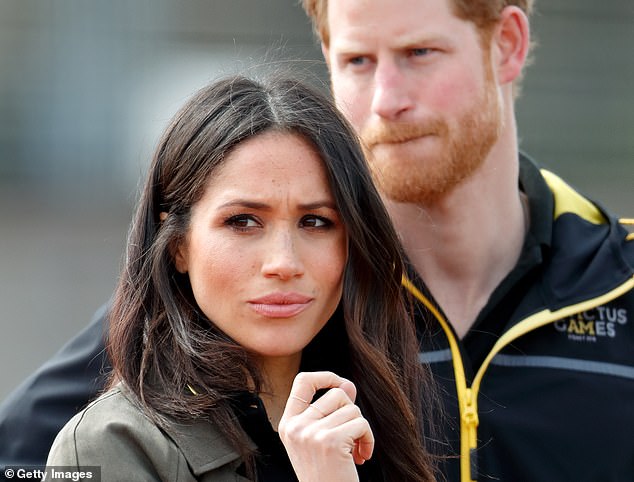
Harry and Meghan in 2018. It was allegedly Meghan who told he Harry he needed to see a therapist in 2016
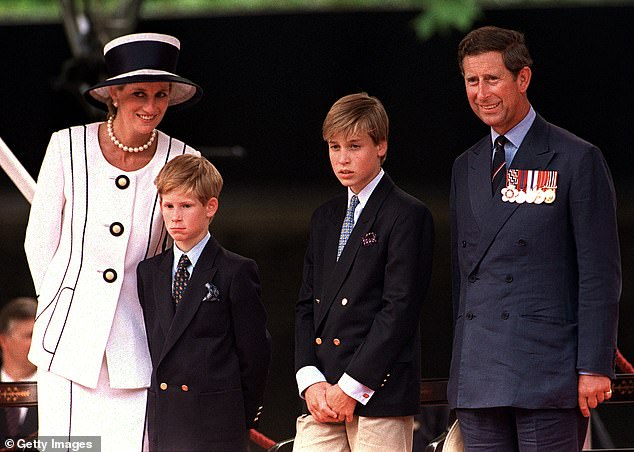
Prince Harry with his mother Princess Diana and his brother and father in 1994. Royal author Ingrid Seward claims the Queen thought Charles had done well raising William and Harry following the breakdown of his marriage to Princess Diana
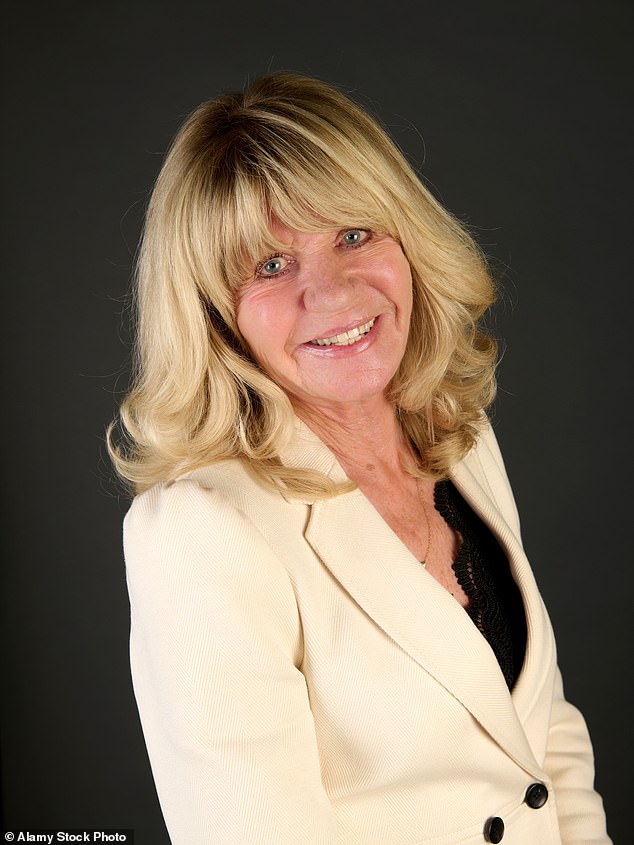
Royal author Ms Seward said the Queen ‘compartmentalised things’ to deal with her own mental health
She said she ‘couldn’t be left alone’ and told her husband she ‘didn’t want to be alive anymore’ before claiming Buckingham Palace staff ignored her plea for help because she wasn’t a ‘paid employee’.
Describing how she considered ending her life, believing it ‘was better for everyone’, Meghan said: ‘I knew that if I didn’t say it, that I would do it. I just didn’t want to be alive anymore. And that was a very clear, real and frightening constant thought.
‘I remember how he just cradled me. I said that I needed to go somewhere to get help. I said that “I’ve never felt this way before, and I need to go somewhere”. And I was told that I couldn’t, that it wouldn’t be good for the institution.’
She said that, after confiding in her husband, she was forced to go to the Royal Albert Hall for a charity event in January 2019 – claiming photos from that night ‘haunt’ her.
Before Harry met his future wife, he had a previous girlfriend that had encouraged him to see a therapist.
Writing in her best-selling book The Palace Papers, royal biographer Tina Brown claims the Duke of Sussex’s then-girlfriend Cressida Bonas encouraged him to visit a mental health professional after she witnessed Harry’s ‘explosive temperament’.
Ms Brown wrote: ‘Cressida began to have serious worries about his mental health. It is not widely known that it was she who first persuaded Harry to see a therapist.’
A family friend told Ms Brown that Cressida forced the Prince to ‘accept he has problems and see a psychoanalyst’.
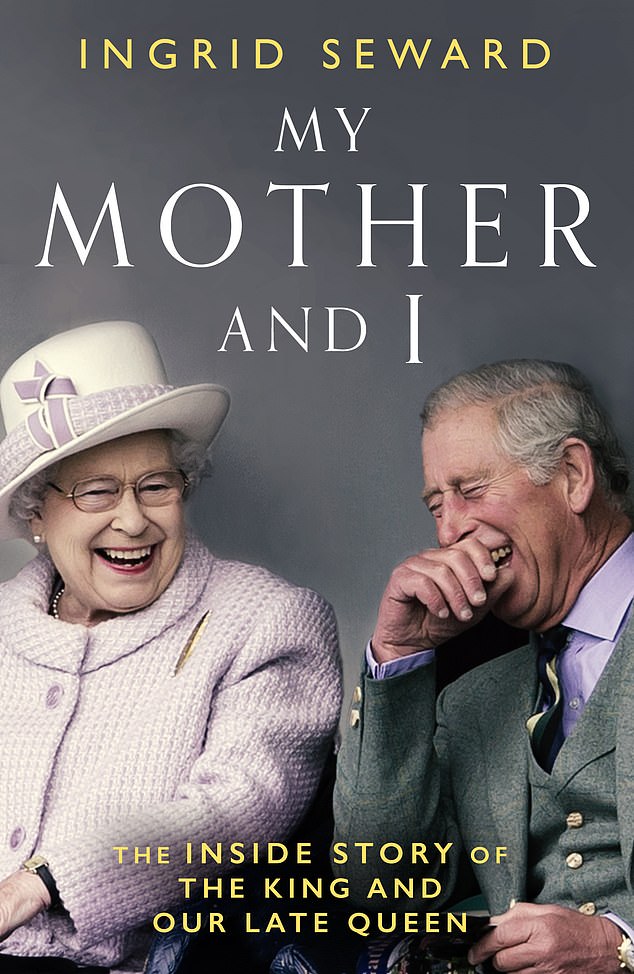
Writing in her royal biography, My Mother And I, Ms Seward said: ‘The Queen could have been the one who needed to put her mental health first, but instead she did what she always did – compartmentalised things’
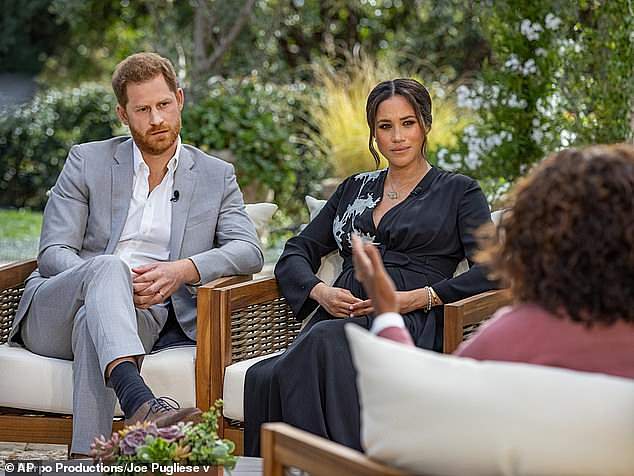
During a bombshell interview with Oprah Winfrey in 2021, Meghan revealed the stress of royal life made her suicidal when she was five-months pregnant

According to royal biographer Tina Brown, Harry was convinced to seek help by his then-girlfriend Cressida Bonas, pictured in 2014
Harry then turned to Julia Samuel for support – a therapist who was Princess Diana‘s friend and worked as an NHS bereavement counsellor.
But the reason Julia was so helpful to Harry was her connection to MI6, where she advised secret service staff – meaning she was capable of being ‘discreet’.
Ms Brown claims a person close to Harry said: ‘There was a need for someone who could be incredibly discreet and who understood what it’s like to have a public version of your life and a private version.
‘Therapists at MI6, that’s what they do.’
It was through therapy that Harry finally unpicked the trauma caused by Diana’s death, which happened when he was just 12 years old.
‘He at last understood his own evasion of sorrow in tactics that ranged from champagne hooliganism to “sticking my head in the sand, refusing to ever think about my mum, because why would that help?”,’ Ms Brown wrote.
Cressida encouraged Harry to seek help after seeing this behaviour on several occasions, documented by Ms Brown.
This included a pub lunch on New Year’s Day in Kidlington near Oxford, when Harry lashed out an elderly man who asked him for a picture.
Ms Brown was told by someone ‘privy to the incident’ that Harry told the gentleman to ‘get out of my way’ before he went ‘bright red in the face and stormed off in a huff’.












